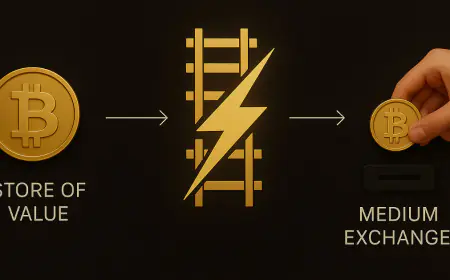Experts weigh in as SEC deviates from past decisions in recent Uniswap action
The US Securities and Exchange Commission (SEC) recently served a “Wells” notice on behalf of Uniswap Labs. This move brings a discussion on the crypto community about the consistency of SEC policies’ enforcement from SEC’s earlier interpretations of what pertains to a decentralized exchange. The crypto market is trying to explore SEC regulations and the […]

The US Securities and Exchange Commission (SEC) recently served a “Wells” notice on behalf of Uniswap Labs. This move brings a discussion on the crypto community about the consistency of SEC policies’ enforcement from SEC’s earlier interpretations of what pertains to a decentralized exchange. The crypto market is trying to explore SEC regulations and the rules around the fair treatment of all participants.
SEC’s changing stance on exchange definitions raises questions in the Uniswap case
Historically, the SEC has ensured that there is an aspect of the exchange that is not short on a certain definition. In Cochran’s words, on his x account former Twitter the authorities (SEC) have so far not been in the habit of perceiving centralized systems that mediate the transactions as such platforms in terms of their function.
The definition of exchange used here has implied a decentralized rather than centralized approach. There should be mechanisms put in place to ascertain the real intention of making the trading systems that route the trades but do not actually execute the trades, thereby not achieving the holistic definition of the ‘exchange.'”
Another of its features is the SEC’s differentiation of informational interfaces from exchanges. History shows the difference between entities that reflect the market by exhibiting and interating with it, and entities that operate as exchanges promoting buyers and sellers to meet. “ No-action ” letters of the SEC in the late 1980s and 90s served the basis to views that platforms and protocols engaged with transactions only without being involved in settlement or payment are not exchanges.
SEC’s notice questions Uniswap’s classification as a crypto exchange
Uniswap is an autonomous crypto exchange on Ethereum blockchain based that automates the token exchange process between one another and cuts off the intermediaries. The point of the issue is based on the SEC’s Wells notice, which can imply SEC’s intention for taking action in the form of fines, leading to their securities law outlook being changed.
Uniswap Labs has asserted its function is only limited to making the interface and not the trading that is done using these contracts which run in their own ECs and are therefore different from the interface itself.
This particularity is the focal point, for the SEC’ drew the inference based on its previous limitation that if the third-party intermediary was not a platform then, it could not be called as an exchange.
Future implications of SEC’s Uniswap case on crypto regulation
past few days, the action against Uniswap has helped many people wonder whether this is at all consistent with what the SEC has put forward as their guidelines on how to classify these kinds of services.
The argument that Uniswap’s operating is run by a frontend and a smart contract separately, as has been seen with similar technologies, may no longer hold, leaving the chain of thought as to why Uniswap should be held up to the strict judgment of exchanges.
The U.S cryptocurrency regulation is still unclear due to this controversial case with the decentralized exchange, Uniswap. This could serve as a precedent for the U.S securities law in the future.
The decision, in this case could solidify the SEC’s persisting definitions or it may pacify the room for crypto exchanges to develop a different playing field in the United States. The increasing requirements for clear and accountable regulatory laws cannot be overemphasized as the industry evolves to ensure both growth and security for the investors are realized.
What's Your Reaction?





































































































